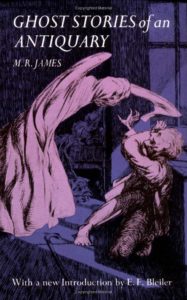 December has always been a month of festivals, ancient and modern. In Europe the Romans alone had nine different ones¹, the most famous of which was, I suppose, Saturnalia (17th to the 23rd of Decembris). In the Hebrew calendar there is Hanukkah, (12th to the 20th) and four others, but the other world religions can claim as many. There is, of course, Christmas.
December has always been a month of festivals, ancient and modern. In Europe the Romans alone had nine different ones¹, the most famous of which was, I suppose, Saturnalia (17th to the 23rd of Decembris). In the Hebrew calendar there is Hanukkah, (12th to the 20th) and four others, but the other world religions can claim as many. There is, of course, Christmas.
Is it because it is a solstice month, either Winter – the longest night – or Summer – the longest day? Or because the skies are especially active, with no fewer than ten meteor showers. I watched the Geminids last weekend from southern Spain, where there is much less light pollution than in London and they were spectacular. Change, especially change as important as the light beginning to return, accompanied by stars dancing in the heavens, would doubtless prompt our ancient ancestors into awe and gratitude. Something to give thanks for and celebrate.
Anglo Saxons gave prominence to Yule, or Geola. December was aerra geola, or before Yule, January was aefter geola. Before Christianity the Festival was sacred to Odin or Wotan, the Wanderer, leader of the Gods and of the Wild Hunt, the supernatural subject of many stories told around the common hearth. A  hunt features in the Duc de Berry’s Book of Hours illustration for December, (see above) though, traditionally, the Wild Hunt rode, charging, across the sky not in a forest. Back to the shooting stars perhaps.
hunt features in the Duc de Berry’s Book of Hours illustration for December, (see above) though, traditionally, the Wild Hunt rode, charging, across the sky not in a forest. Back to the shooting stars perhaps.
In literature, December appears almost always in relation to Christmas, but not only in Victorian tales. Sir Gawaine and the Green Knight (late 14th century) begins at the Christmas feast, Twelfth Night was written to be performed at that time (though has little to do with either Yule or Christmas) and A Winters Tale could be said to belong to December. It is during the festive celebrations that Emma Woodhouse turns down a marriage proposal from Mr Elton (1815) and Washington Irving’s Mr Crayon spends the season in an English country house, in Old Christmas (1819). There are plenty of Christmases in European literature too.

Nonetheless, the great age for Christmas writing was Victorian, in literature as in customs. Dickens aside, Sherlock Holmes goes sleuthing for a Christmas goose in The Blue Carbuncle, and Wilkie Collins joined with Dickens and Elizabeth Gaskell to write collections for the festive season. Indeed the three of them seem to have hit on a winning formula, with Dickens writing the beginning of a story and Collins, Gaskell or other well known writers continuing it. The results were published, to popular acclaim, in ‘Household Words’ or ‘All Year Round’.
Ghost stories are particularly prevalent at Christmas or in deep midwinter, when Frankenstein (1818) begins. Henry James’ The Turn of the Screw (1898) starts around a Christmas hearth, Robert Louis Stephenson’s The Body Snatcher was an  1884 Christmas ghost story and H.P.Lovecraft wrote The Festival (1923). M.R.James, master spine chiller, wrote in the preface to Ghost Stories of an Antiquary (1904) that they had been written over many years, usually for reading aloud to friends around the Christmas hearth.
1884 Christmas ghost story and H.P.Lovecraft wrote The Festival (1923). M.R.James, master spine chiller, wrote in the preface to Ghost Stories of an Antiquary (1904) that they had been written over many years, usually for reading aloud to friends around the Christmas hearth.
So, in this midwinter season, I wish you all a peaceful and joyous Yuletide, with many happy hours spent deep in a good book, set at Christmas or otherwise. To help you I will be writing about my Books of 2017 on Christmas Day. In the meanwhile, to everyone who reads The Story Bazaar blog and books, lines from Puck’s closing speech –
Gentles, do not reprehend:
If you pardon, we will mend.
If you are thinking of purchasing any Story Bazaar books this Yuletide, please note that the novels and short stories are part of the Smashwords sale from 24th December 2017 to 1st January 2018.
Other seasonal articles include September Rainy Season
¹Sol Indiges, Septimontium, Dies Natalis, Consualia, Saturnalia, Opiconsivia, Divalia, Laurentalia and Sol Invictus.


 RSS – Posts
RSS – Posts
2 responses to “Season’s Greetings”